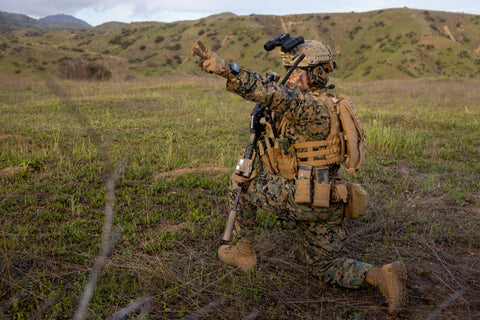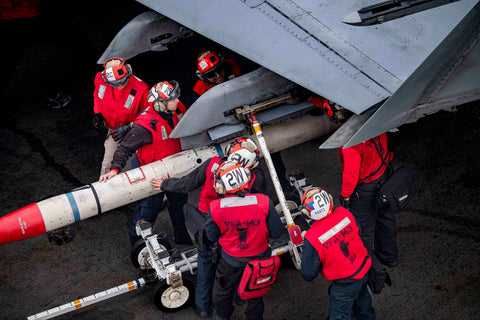
Time is a vital component of human life, helping us structure our day and facilitate coordination. But what if the conventional timekeeping system was somehow inadequate? For many armed forces across the globe, it has been. This is where "military time" steps in—a 24-hour clock that provides unambiguous time, removing the risk of misunderstanding due to the absence of AM and PM. It’s not just about tradition; it’s a practical choice with historical roots and valuable insights that we can all benefit from understanding.
In this comprehensive post, we unravel the reasons behind the military's unique timekeeping system. Share in the legacy as we explore the past, present, and potential future of military time.
Why does the military use military time?
To appreciate the significance of military time, it's essential to look back at its origins. The 24-hour system dates back centuries and was initially used in early Egyptian, Greek, and Roman societies. However, it was the demands of the military—both in peace and during conflict—that solidified its usage.
From the Battle of Waterloo to the D-Day landings, coordinated military operations have hinged on precise timing. The ambiguity of the 12-hour clock proved costly in scenarios demanding clarity and immediacy, leading to the adoption of a new standard—the 24-hour clock. This clarity helped in planning, execution, and communication across languages and borders.
The International Standard
Adoption of the 24-hour clock became international, primarily through military and industrial necessities. The format's clear and uniform nature made it an essential tool in global communication, leading to its rise as an international standard.
The Inner Workings of Military Time
Understanding military time means grasping a fundamentally different way to tell time. With the absence of AM and PM, the 24-hour clock uses a single cycle of 24 hours, starting at midnight (0000) and ending at midnight the next day (2400). A clear and unambiguous system, it represents a significant shift in perspective from the fluidity of the traditional 12-hour clock used in civilian life.
Why No AM or PM?
The question arises—why the need to separate time into two distinct 12-hour periods in civilian life? The reason is tied to tradition rather than utility. The Latin phrases ante meridiem (before noon) and post meridiem (after noon) originated at a time when there was no immediate need for precise timekeeping as we understand it today. Conversely, the military has always required an exact and universally understood method of telling time, leading to the adoption of an unbroken 24-hour clock.
The Functional Advantages of Military Time
Adopting military time extends practical advantages beyond simply avoiding confusion between morning and afternoon hours. The system offers benefits in diverse fields ranging from transportation to healthcare, and any situation that demands a higher level of precision and clarity.

In situations where accuracy is mission-critical, such as global travel timetables and emergency services, miscommunications regarding time can lead to severe ramifications. Military time's precision ensures that such errors are all but eliminated.
With a growing global community, precise and universal communication is more important than ever. Military time enables effective communication across different cultures, languages, and time zones, offering a single, unambiguous method understood worldwide.
In the civilian world, we often encounter military time in contexts that demand unambiguous timing, such as public transportation schedules and event planning, or in professions such as logistics, aviation, and healthcare. But its influence extends further.
The Digital Age's Impact
With the rise of digital interfaces, there’s also a growing trend toward simplifying and centralizing timekeeping. This includes a more widespread integration of military time formats in everything from smartphones to computer software, thereby increasing its visibility and normalization in daily life.
The continued integration of military time into modern life raises pertinent questions about the universal adoption of this system. While it may never fully replace the familiar 12-hour format, there's a strong case for its broader use.
A Shift in Mindset
The acceptance of military time requires a shift in mindset, but it’s one that could refine our approach to schedules and time appreciation. By promoting a more exacting understanding of time, we could see improvements in punctuality and productivity.
The use of military time is a step towards a singular method of global timekeeping. As our world becomes more interconnected, a universal time standard becomes increasingly attractive, if not essential, for effective international communication.
Whether you're considering adopting military time in your personal or professional life, or you're simply intrigued by its history and application, there’s much to gain from engaging with this robust system of timekeeping.
For those interested in integrating military time, a gradual transition is often the most practical approach. Start by familiarizing yourself with the 24-hour clock, and use it alongside the conventional system until it becomes second nature.

Wrapping Up
The use of military time is a testament to the adaptability and foresight of human systems in response to the demands of their environment. While it may have originated as a practical solution for war, it now serves as an anchor for precise communication and global unity.
Through our exploration, it's clear that adopting elements of this timekeeping tradition can significantly impact both individual and collective experiences with time. And perhaps, as we grapple with an increasingly busy and interconnected world, the principles that underpin military time can offer invaluable lessons for managing our most precious resource—time itself. Whether you choose to integrate elements of military time into your life or not, its legacy will continue to shape our understanding and approach to timekeeping for generations to come.